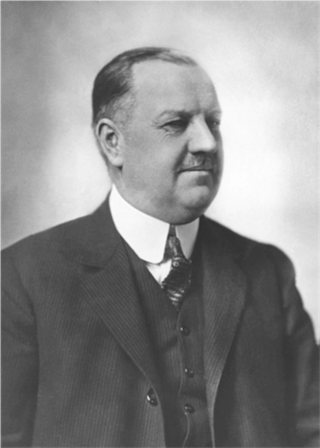Carl Vaugoin

Personalia
Born:
Died:
Profession:
Persecution:
Imprisonment 28.03.1938 - 09.08.1939,
Expropriation 1939
Memberships
Curriculum Vitae
Carl Vaugoin first attended the grammar school in Kremsmünster and then transferred to the Amerlinggymnasium in Vienna 6, where he graduated in 1892. He completed his one-year voluntary service before embarking on a career as a professional officer in 1894. However, as he was found to be unfit for military service and was discharged in 1899, he joined the Lower Austrian provincial government as a civil servant, where he worked in the accounting department. At the same time, he joined the CSP, which he represented on the Vienna City Council from 1912-1920.
He took part in the First World War, ultimately with the rank of cavalry captain. After the war, he was a Vienna City Councillor from 1918-1920 and then a member of the National Council during the parliamentary phase of the First Republic from 1920-1933. In 1926, the Christian Social politician Carl Vaugoin became an honorary member of the student fraternity Rudolfina and in the same year also of the secondary school fraternity Liechtenstein Vienna.
As Minister of the Army (1920,1922 to 1933), he served in a total of 15 cabinets. He succeeded in transforming the Volkswehr troops into the politically neutral Austrian Armed Forces. In 1929/30 he also held the office of Vice-Chancellor and from September to November 1930 that of Federal Chancellor. From 1930 to 1933, he succeeded Ignaz Seipel as Federal Party Chairman of the Christian Social Party. He belongs to the group of politicians (such as Josef Schlegl, Josef Anton Resch, Otto Ender, Richard Wollek, Leopold Kunschak, Friedrich Funder) who do not agree with the policies of the corporative state and lose their positions after the "self-dissolution" of parliament. Between 1933 and 1936, Carl Vaugoin became President of the Administrative Commission of the Austrian Federal Railways - and thus politically disempowered.
When the CV was increasingly infiltrated by the National Socialists after Adolf Hitler came to power in Germany on January 30, 1933, the Rheno-Palatia Breslau submitted a motion on May 8, 1933, demanding the expulsion of Engelbert Dollfuß and Carl Vaugoin from the CV. Among other things, this resulted in all Austrian associations and fraternities backing the two exponents and ultimately triggered the "disconnection" (secession) of the Austrian fraternities from the large joint CV and the founding of the ÖCV.
Places
Residence:
Citations
Krause, Peter/Reinelt, Herbert/Schmitt, Helmut (2020): Farbe tragen, Farbe bekennen. Katholische Korporierte in Widerstand und Verfolgung. Teil 2. Kuhl, Manfred (ÖVfStG, Wien) S. 371/372.; Photo: ÖVfStg
